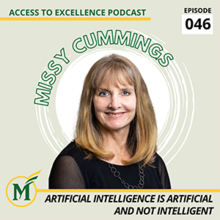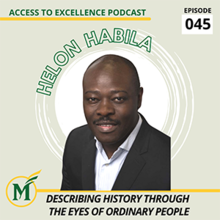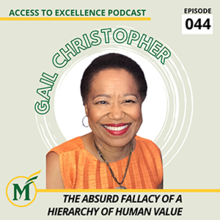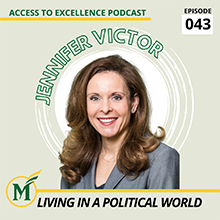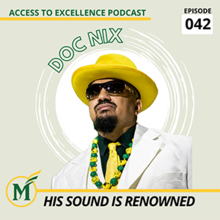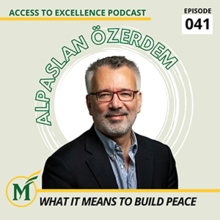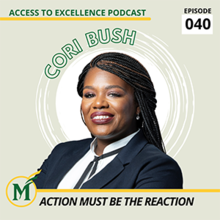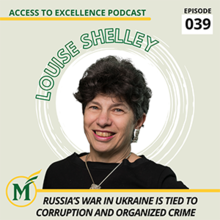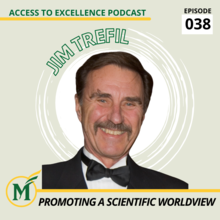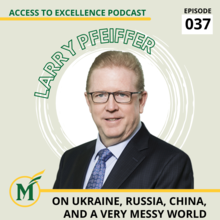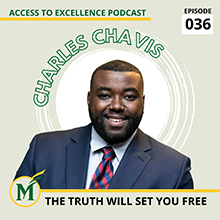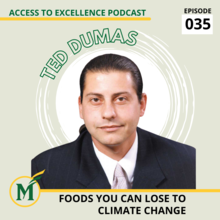A podcast All Together Different
Join George Mason University President Gregory Washington as he invites experts, change-makers, innovators, and thought leaders to engage in meaningful conversations about the greatest challenges of our time.
Listen and learn from audacious people from Mason and beyond who represent the diversity of insight, the agility of collaboration, and the tenacity required in the struggle for a better future that is at the essence of the Mason Nation.
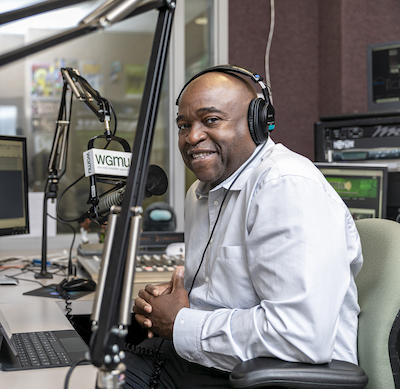
President Gregory Washington hosts each episode of the Access to Excellence podcast, recorded on the campus of George Mason University.
What will become of the Amazon? (Episode 58)
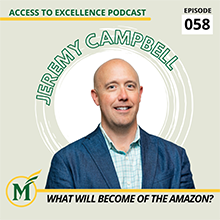
Jeremy Campbell, associate director for strategic engagement in George Mason University’s Institute for a Sustainable Earth, says that at its current pace the vast Amazon rainforest, in five to 10 years, could pass a tipping point in which it could transform into grasslands. That process, fueled by deforestation and climate change, is a threat to the biodiversity and socio-cultural aspects that define the region, and has global implications as well. In this fascinating conversation in recognition of Earth Month, Campbell explains to Mason President Gregory Washington the magnitude of what the loss of the Amazon rainforest would really mean and how the Institute for a Sustainable Earth is on the front lines in the region. Listen now.
"Where there used to be forest, you're not going to get any more of that transpiration cycle, and so the dryness isn't limited to the places where deforestation happens. Where things are really dry, things get hotter. And when you add what we had last year, with the horrible situation throughout the Amazon of an El Nino induced heat spike and drought, then you have villages that rely on the rivers to get around that are literally stranded. So the drying out of the Amazon is a tremendous biodiversity challenge, it's also a tremendous economic challenge. But it's also a human tragedy that is taking tremendous costs on the people of the Amazon as well."
Jeremy Campbell
Access to Excellence, Episode 58
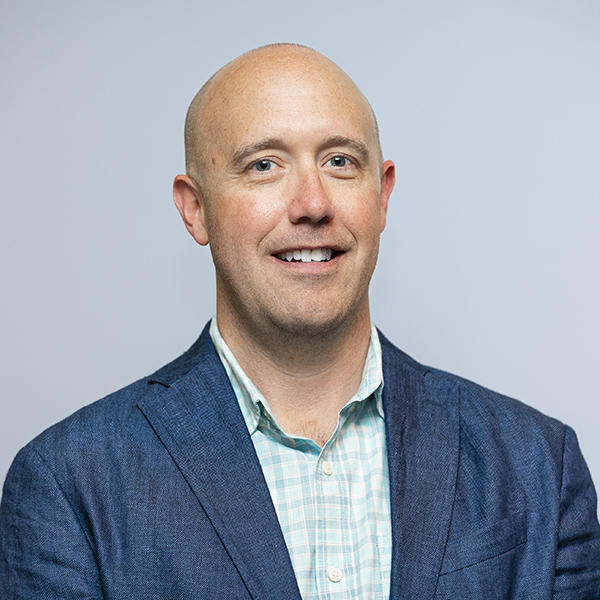
Jeremy Campbell is associate director for strategic engagement at George Mason University's Institute for a Sustainable Earth.
Subscribe on Your Preferred Platform
All Episodes
- January 25, 2023Missy Cummings, one of the country’s first female fighter pilots and the director of Mason’s autonomy and robotics center, calls herself a tech futurist, charged with making tech work and helping it get better. She isn’t shy about calling out bad tech either, including the vision systems in self-driving cars and Tesla’s Autopilot.
- December 13, 2022Helon Habila, a professor of creative writing, and an acclaimed international author, has never shied away from important issues. The author of four novels and a factual account of the 2014 kidnapping in Nigeria of 276 young girls by the terrorist group Boko Haram, Habila says he strives to describe history through the eyes of ordinary people.
- November 16, 2022When Gail Christopher, executive director of the National Collaborative for Health Equity and a Mason senior scholar, talks about “ensuring a future,” she’s really talking about creating a system of equity that produces opportunities for everyone to “actualize their potential.”
- October 18, 2022Are the midterm elections the most consequential of our time? Maybe, maybe not. Jennifer Victor, associate professor of political science in Mason’s Schar School of Policy and Government and Mason president Gregory Washington wrestle with that, and you might be surprised at the answer. Want more surprises? Then hear why high voter turnout could be a double-edged sword for our democracy.
- September 6, 2022Dr. Michael Nickens, an associate professor of music at Mason, explains how he transforms from his mild-mannered persona into Doc Nix, the flamboyant leader of the Green Machine, the nation’s No. 1 pep band. Actor Bill Murray is a fan of the band, and Nix is pretty good on the tuba.
- July 25, 2022Alpaslan Özerdem, dean of the Jimmy and Rosalynn Carter School for Peace and Conflict Resolution explains the keys to effective peacebuilding, whether it concerns the war in Ukraine, gun violence or local issues. And don’t miss the discussions about how an alien invasion could help mend the rift between Russia and the West.
- June 15, 2022Rep. Cori Bush, Missouri's first Black congresswoman, is teaching at Mason this summer. A pastor, teacher, nurse, and a Black Lives Matter activist in Ferguson, Mo., Bush talks about her most her unusual, and activist, path to Congress. “There is always someone to help, something to give,” she says. And she doesn’t flinch discussing controversial issue around race and policing.
- May 20, 2022Louise Shelley, a University Professor and director of Mason’s Terrorism, Transnational Crime and Corruption Center, explains the connections between Russia’s war in Ukraine and corruption and organized crime, and how criminals and terrorists take advantage of the globalized world in which we live.
- April 19, 2022Jim Trefil, a Mason physicist and Robinson Professor, explains the importance of a scientific worldview. The author of more than 50 books and one of the developers of the modern theories about quarks as a fundamental component of the universe, Trefil is helping pioneer a new way of teaching science.
- March 15, 2022Larry Pfeiffer, director of Mason’s Michael V. Hayden Center for Intelligence, Policy, and International Security explains Vladimir Putin’s real agenda in Ukraine and why China is taking notes. He also asks Americans to guard against autocracy at home because, as he said, it doesn’t take much for a country's values to be subverted and freedoms suppressed.
- February 18, 2022Charles Chavis, an assistant professor of conflict resolution and history, and director of African and African American studies, talks about his new book that explores the lynching of a young Black man in Salisbury, Md, and how understanding his story and the Black experience can help find the right ways to fight anti-Black violence today.
- January 12, 2022Ted Dumas, an associate professor of psychology and an experienced researcher, reveals foods we are losing to climate change, how a pooping bear in Japan can help keep cherries from extinction, and that if we do nothing about the climate, most of the US could be uninhabitable by 2100.




